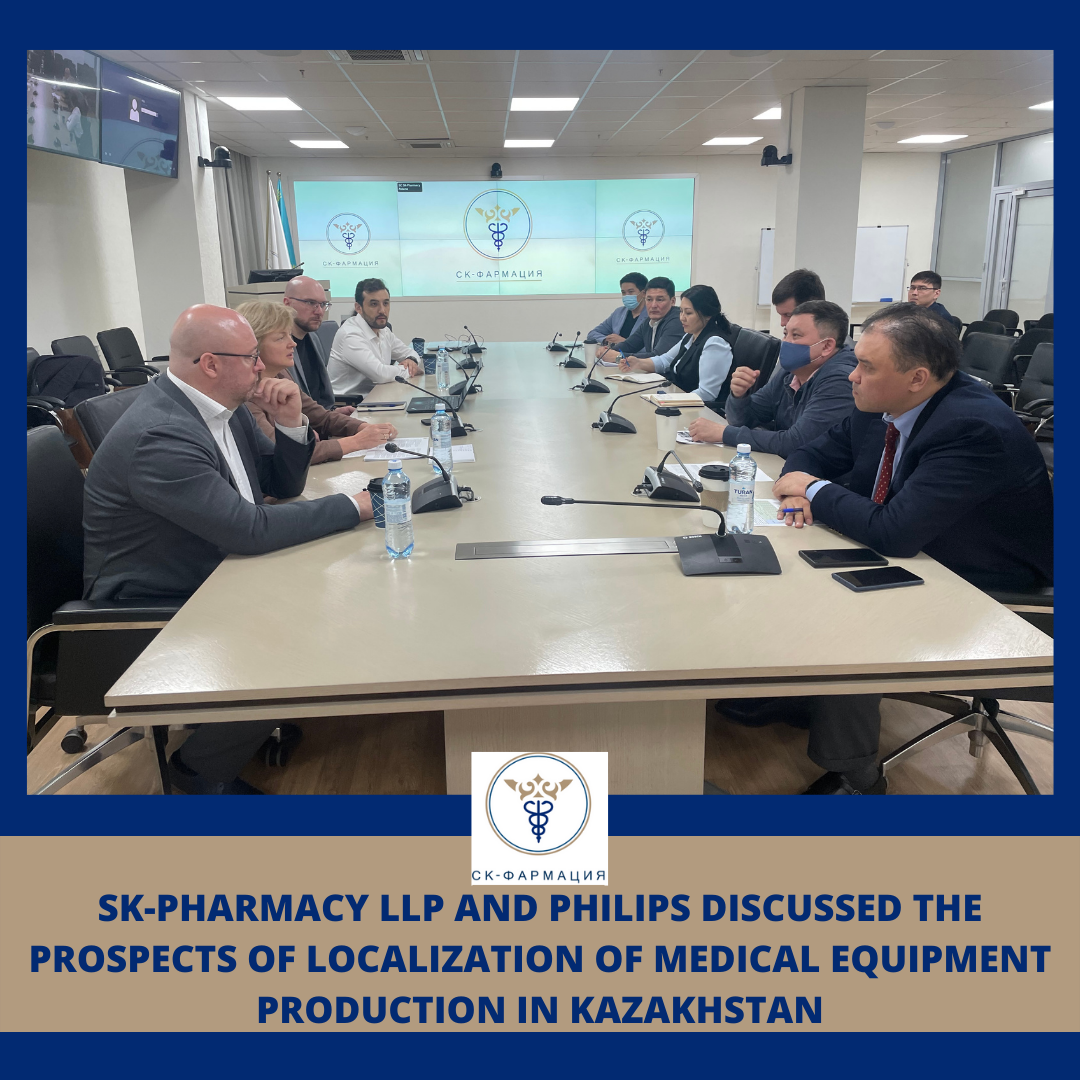
On April 21, 2022, SK-Pharmacy LLP the Single Distributor held a meeting with representatives of Philips, where plans for cooperation in the field of localization of medical equipment production under life cycle contracts in Kazakhstan were discussed.
It should be recalled that the Head of State instructed to switch to a centralized medical equipment procurement on the basis of the Single Distributor, following the example of the procurement of medicines and medical products. In fulfillment of the order, it is planned to carry out centralized medical equipment procurement in two stages. In the future, the Republican Program for medical equipping for the next five years will be approved with the definition of funding sources.
The President also noted the importance of cooperation with global manufacturers of medicines and medical devices, attracting investors, ensuring the transfer of technologies and the latest developments.
In the execution of these instructions SK-Pharmacy LLP Single Distributor has started working with world manufacturers of medical equipment to develop mechanisms for centralization, including on the terms of localization of production.
Speaking about the role of localization of production, it should be noted that entering a new stage of integration will be a transition to a new model of the industry. The tasks of increasing the level of localization of production play one of the key roles in this regard.
Single Distributor has started a substantive study of the issues of medical equipment production localization in the Republic of Kazakhstan using the mechanisms of long-term contracts, offtake contracts, leasing mechanisms, "life cycle" contracts.
Single Distributor shows great interest in studying the experience of procuring medical equipment by concluding life-cycle contracts, as well as receiving methodological assistance on this issue.
At the meeting, representatives of the world's leading manufacturer of medical equipment Philips shared their experience in localizing the production of medical equipment and participating in PPP projects in Russia, including within the framework of life cycle contracts for the needs of healthcare organizations in Moscow.
Parties also discussed the issues of medical equipping, equipment planning, financing, efficiency of medical equipment use, regulatory framework for procurement under life cycle contracts, improvement of maintenance and repair. In addition, the possibility of opening Philips training centers in Kazakhstan was discussed.
Philips cooperates with Roentgenprom CJSC, based on which it has been producing Affiniti ultrasound systems and Ingenuity and MX16 computed tomography devices since the summer of 2017, which has significantly reduced the time and costs of supplying modern high-tech equipment to Moscow medical institutions.
The mechanism for concluding life cycle contracts is widely in demand among manufacturers of medical equipment. In turn, suppliers have not only the technical capabilities to produce the necessary equipment for the city, but also relevant experience in the service. This is important when concluding life-cycle contracts because they assume that companies will ensure the operability of equipment throughout its entire service life. Such a public procurement mechanism allows medical institutions to use the devices more efficiently, and the state to optimize the costs of repair and maintenance of procured equipment.
Manufacturers, due to life-cycle contracts concluded with Moscow, ensure the utilization of their production capacities, and receive stable incomes throughout the entire term of the contract, provided that its conditions are fulfilled in good faith. In addition, suppliers can improve their technologies, as it is often necessary to upgrade equipment to meet the customer's conditions.
All this will ensure transparency in the planning of the medical equipment procurement, increase the level of equipment with the necessary medical equipment, reduce its cost by consolidating the procurement and unifying technical tasks. The quality of service and personnel training will also improve the share of domestic producers in the medical equipment market will increase.
Reference:
Koninklijke Philips N.V. is a Dutch multinational company. The company was founded in 1891 and has changed its priority activity several times in its history: initially it produced light bulbs, then switched to consumer electronics, after the 2000s it began to specialize in medical diagnostic equipment. About a third of the company's revenue comes from operations in the United States. Royal Philips is a world leader in medical technology. Over the past ten years, Philips has undergone a transformation and has become a company focused exclusively on healthcare solutions.